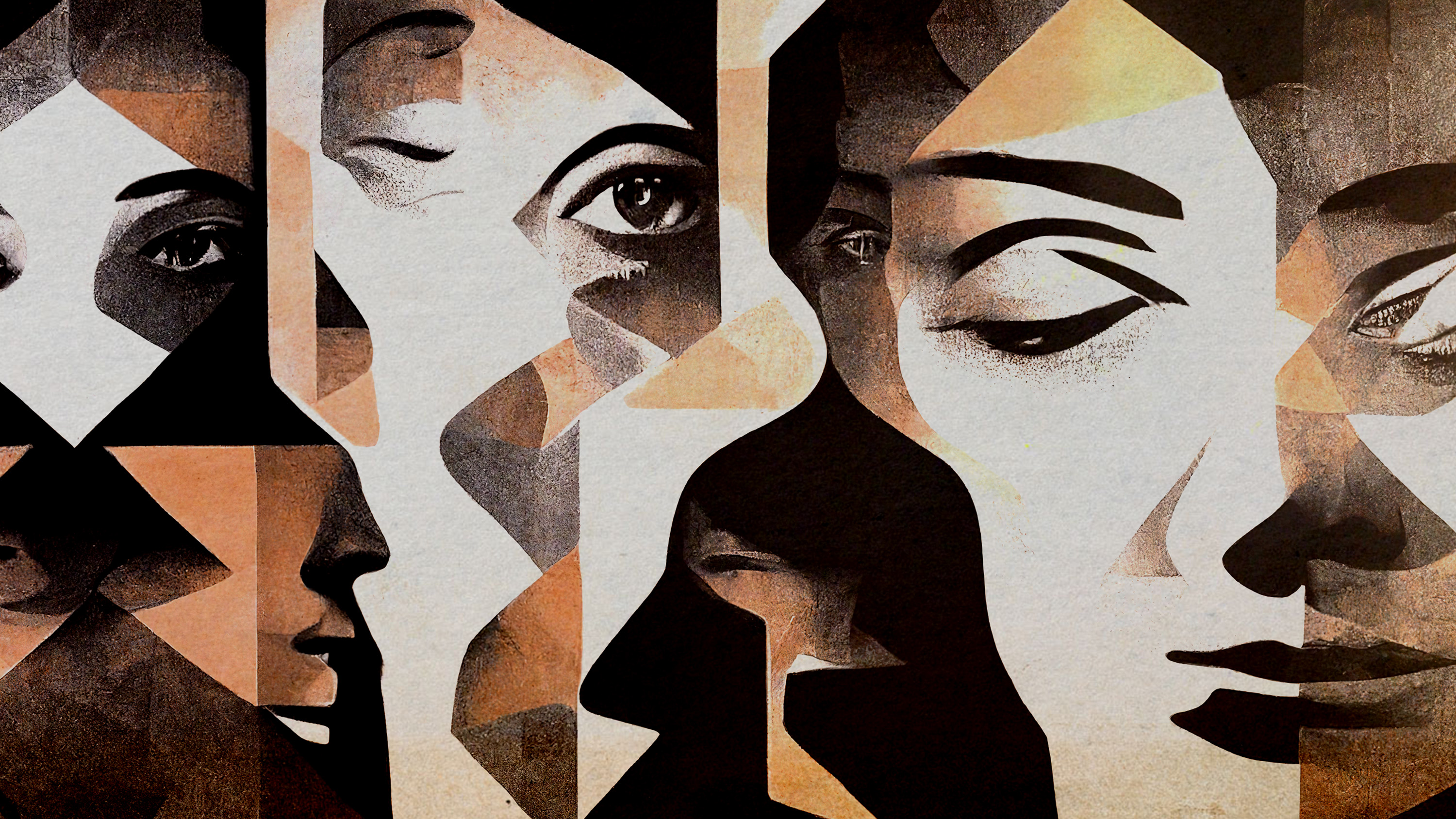Background to the Philosophy of Care
When Lawrence Kholberg began researching moral development in the late 1950s, he based his dissertation entirely on the responses of 84 men and boys[1]. Such a narrow sample is unimaginable today, but the decision to exclude women (and other groups) from his research largely reflected mainstream attitudes of the 1950s. As it turned out, the exclusion of women provided a unique opportunity for a different mindset to explore what Kholberg missed. When Carol Gilligan questioned women and girls using the Heinz dilemma, her participants responded very differently from Kholberg’s all male sample[2]. In the Heinz dilemma, a husband cannot afford to buy the drug that will save his wife’s life. Consequently, he is given a choice between helplessly letting her die or stealing the drug from the pharmacist who developed it. According to Kholberg, men and boys who advocated stealing the drug had a higher level of ethical reasoning than those who simply obeyed the law. When Gilligan posed the same dilemma with women and girls, she discovered they saw the world very differently. Almost unanimously the women and girls in her study did not advocate stealing the drug from the pharmacist, and so according to Kholberg’s theory had a lower level of moral reasoning. However, Gilligan listened carefully, without judgement, and reached a very different conclusion.
Gilligan understood she was listening to voices that transcended the ethical philosophy of her time. Instead of a focus on individual rights, justice and the individual perspective of Heinz himself, women considered the Heinz dilemma from the perspective of Heinz’s wife, the community, the pharmacist, even the whole of society. Women primarily focused on relationships, and saw the problem as one of ‘conflicting responsibilities’ rather than conflicting rights.[3] The women in her study were concerned with empathy and compassion and viewed the hypothetical dilemma from the perspective of what would happen in real life, not the imagined scenario. The need to value relationships beyond the immediate personal emotional cost was central to their ethical rationale. Despite its simplicity, this was a revolutionary re-imagining of what it is to be ethical. Far from suggesting women were ethically deficient, this philosophy of care, as Gilligan defined it, was as important an ethical conceptualisation as those based on justice and individual rights, and possibly more so.
Central to the philosophy of care is the idea we have an ethical responsibility to others aside from our own self-interest. This does not mean an individual’s needs don’t matter, they are considered in conjunction with the needs of others when weighing up an ethical dilemma. This is different to prioritising the needs of the majority, the core paradigm of utilitarianism.[4] For a utilitarian, what makes a decision ethical are the consequences for the majority of people. Unfortunately, the way most people interpret this is the majority of ‘us’ and not the majority of all people. The philosophy of care requires us to consider our responsibilities to everyone affected by our decisions and prioritises those who have the greatest need. Doing the right thing rests on acknowledging and meeting the needs of those who will suffer the most, even when they are the minority and caring for them may incur a cost for the majority.
While the philosophy of care also crosses over into Aristotelian virtue ethics, prioritising virtues like compassion and benevolence, the ethics of care is more than virtues. Like other philosophical perspectives, the ethical paradigm ‘to care’ demands a change in how one envisages the world. By regarding the needs of others as equal to one’s own, the philosophy of care balances the rights of the individual with the needs of the collective. While Heinz’s wife might have a moral right to a drug to save her life, the philosophy of care would demand that Heinz and his wife also consider the effect that stealing the drug would have on the welfare of everyone else. As Gilligan discovered in her sample, women considered the dilemma from many different perspectives. From the pharmacist’s perspective, because the pharmacist has a right to make a living. From the community’s perspective, the community needs the pharmacist to continue to invent and supply medications so other lives can be saved. From Heinz’s wife’s perspective, she needs her husband by her side to help her recover and not be convicted of a crime and put in jail. From her family’s perspective, her husband and children need to retain the support and respect of the community so they can continue to thrive in the event she dies.
According to the philosophy of care, Heinz’s wife may have the highest ethical priority, but this also means she has the most to lose from the wrong actions of her husband. Given that neither Heinz nor his wife are able to afford the medication to save her, the obligation falls to the pharmacist and to their community to help them. As the pharmacist also has a right to make a living, it is unrealistic to expect him/her to give away drugs to those without the means to pay for them. Consequently, Heinz must do something to resolve the dilemma. While the men and boys in Kholberg’s sample concluded that theft was the best solution, such a decision ignores the ethical obligations of others in the dilemma. Heinz is not alone, he is surrounded by a community with many mutual benefits and responsibilities. In a modern context, Heinz could appeal to the government for help, or seek the support of friends and relatives or even set up a GoFundMe page where total strangers could donate money. Indeed, in a society that advocates the philosophy of care, the community would pay for the drugs for Heinz’s wife rather than let her die, which is what typically happens in the real world in Australia.
When Gilligan listened to the women in her sample, she heard the voices of traditionally less powerful members of society. People who rely on others for help, rather than stoically relying on themselves. The philosophy of care is strongly associated with feminist theory, which not only advocates for women but also the rights of all marginalised and oppressed groups in society. Because it is difficult to advocate for the oppressed without pointing the finger of responsibility at the oppressor, feminism appeared to be the natural enemy of men, and especially powerful men in a capitalist society. Unfortunately, this also helped to marginalise feminism, and everything related to it, even amongst modern women who feel neither oppressed nor marginalised.
While feminism still has a role to play in driving the fight against inequality, it is time to decouple the philosophy of care from its traditional yolk, and consider ‘care’ from a more pragmatic, mainstream perspective. The philosophy of care asks us to look beyond the needs of an individual and to put caring about others as a higher ethical responsibility for all society. Ironically, as the military has a collective culture where individual needs and wants are secondary to the demands of the team/task, the philosophy of care is already common military practice, even though most ADF members don’t know it.[5]
The Philosophy of Care and the Military
In the early 2000s, ethical theories like utilitarianism, deontological ethics and virtue ethics shifted into mainstream military education in Australia.[6] The philosophy of care, however, was virtually unknown as an ethical concept until 2018. Which is interesting because the military is, and has always been, reliant on relationships. Empathy, compassion and a sense of fraternity is a normal part of military service, making military life more like a family than a regular job. Indeed, it is the capacity to care that provides the foundation for Service virtues and values. Concepts like courage, integrity, respect, teamwork, service, excellence, even innovation are meaningless in an environment where people genuinely don’t care or don’t take responsibility for their actions. As the military has become more values-driven over the past few decades, it has also become more care-driven.
The philosophy of care requires individuals to consider the needs of others, and themselves, and to prioritise those needs accordingly. In the absence of a culture of care, individuals focus on their own needs and place greater value on self-reliance and individualism as opposed to seeking support and collectivism. In an individualist culture, strength is personal, it emanates from the individual. This works well while the individual feels in control of their environment and has no concerns about their ability to cope. However, the greatest strength of an individualist culture, self-reliance, can also be its greatest weakness. Self-reliant people place great weight on their own ability to cope without help. This is a classically masculine view of the world, and there is now considerable evidence that masculine people, who are more likely to be men, are at greater risk of early death and suicide because they don’t seek help when they need it.[7]
By contrast, in a collectivist culture, strength comes from the group working together. Members are valued for how much they share with, and care for, others. When caring for others is a cultural virtue, the entire group is made stronger. Interestingly, this focus on the group is well known in the military, where Service personnel are trained to work in small, close-knit teams eg, an Infantry section. It is also difficult to imagine someone behaving courageously in the absence of something, or someone, they cared about. As Vanessa Baird points out, the essence of courage is the act of denying individualistic notions of self-preservation by focusing on something outside the self.[8] Baird quotes Richard Avramenko of the University of Wisconsin:
Courage…., is the willingness to risk life and limb for the sake of something. In other words, courage reveals what we care about… It reveals that which inspires us to overcome ourselves. And it is the self-overcoming character of courage that makes it so poignant. When we are witness to real acts of courage, we know immediately what matters most fundamentally to the courageous actor – and it is not herself, not her own physical well-being.[9]
People demonstrate greater courage when protecting others than alone. In Fein’s study of people who fought against acts of genocide, most stated they had no choice but to behave heroically because their deep sense of empathy for others made the choice to do nothing impossible.[10] While rugged individualism and self-reliance seem to be stereotypic virtues in the military, consistent with being a ‘masculine’ culture, every good sailor, soldier or aviator knows it would be anathema to just look after themselves at the expense of their mates. New recruits quickly learn to be respectful of the needs of others and to incorporate this into their day-to-day behaviour, even though they must also strive to cope on their own. Success in the military requires personnel who are both self-reliant and capable of meeting the needs of others, so it follows that military culture is equal parts individual and collective. Arguably, those most adapted to such a culture are people who are themselves equal parts individual and collective, eg, masculine and feminine.
A study conducted in 2001 investigating gender-role identity and resilience amongst Australian Regular Army (ARA) recruits found some evidence to support this view.[11] A sample of 137 recruits were allocated to one of four gender identity groups using the Personal Attributes Questionnaire (PAQ)[12]: Androgynous (high masculinity-high femininity) n=45; Masculine (high masculinity-low femininity) n=27; Feminine (high-femininity-low masculinity) n=28; and Undifferentiated (low masculinity-low femininity) n=37. Outcome variables included positive and negative affect (e.g., emotional temperament), satisfaction with life, commitment and psychological health. The results showed that androgynous and undifferentiated respondents had significantly higher satisfaction with life scores than either masculine or feminine respondents. Whereas androgynous and masculine respondents had significantly higher positive affect and commitment scores than either the feminine or undifferentiated groups. Regression analysis showed that femininity and commitment accounted for a significant proportion of the variance for satisfaction with life, whereas masculinity was the strongest predictor of positive mood. These findings at least raise the possibility that military personnel with both masculine and feminine traits have a greater range of coping behaviour and are likely to feel well adapted wherever they are, including in the military[13] [14].
A Final Word on Stoicism
One might argue that caring about one’s mates in a military team is a long way from adopting the philosophy of care as a military cultural ideal, especially when facing an adversary. Indeed, ‘not caring’ about the enemy has long been thought to be protective against emotional reactions in combat. Displaying any kind of emotion was thought to be a clear sign of weakness, so never revealing one’s inner feelings, or even better, having no inner feelings at all, appeared to be adaptive in this context (hence the views of the author we have discussed throughout this paper). This, it was believed, was being stoic and stoicism was thought to be a particularly beneficial mindset for warriors. However, this simply reveals a misunderstanding of the concept of stoicism.
According to Greek philosopher Epictetus, stoicism is primarily about directing one’s attention to those things one has control over, namely one’s inner self. Admiral James Stockdale in his book, Thoughts of a Philosophical Fighter Pilot, [15] did not advocate stoicism because it allowed him not to care; indeed, quite the contrary, he advocated stoicism because it taught him what he should care about. Stockdale found the teachings of Epictetus gave him profound moral courage during his seven and a half years as a prisoner of war in Vietnam, not by making him an unemotional zombie but by helping him to cope effectively with isolation and repeated acts of torture. Stoicism allowed him to see that his only way to maintain control, and meet his own need to survive, was by continuing to remain a moral and dignified person. For him, strength came not from developing a passionate hatred for his enemy, but from a focus only on what he still had control over and responsibility for, his own inner self.
Stockdale strongly believed that war is a battle of wills, and holding the moral high ground ‘is more important than firepower’ in breaking the enemy’s will. No doubt, this is why he had deep misgivings about the rightness and wrongness of the decision to go to war in Vietnam.[16]
To take a nation to war on the basis of any provocation that bears the smell of fraud is to risk losing national leadership’s commitment when the going gets tough. When our soldiers’ bodies start coming home in high numbers, and reverses in the field are discouraging, a guilty conscience in a top leader can become the Achilles heel of a whole country.[17]
Given the central importance of moral integrity to stoicism, it is not difficult to imagine what Stockdale, or even Epictetus, might have thought of ‘moral ambivalence’ training or being a leader who does not care about the consequences of their actions. It is the search for goodness within the self that gives stoicism its meaning and its strength, especially when all else fails. To be indifferent to whether one’s actions are good or evil does not free a person from responsibility for those actions, it merely reduces the human being to the status of a lion killing a zebra. By any measure, to deprive a person of their sense of responsibility in this way is an example of catastrophic ethical failure. Regardless of what a person may feel, or even believe, when it comes to our purposeful actions to commit or ignore an act that is deeply immoral, we are, whether individually or collectively, responsible. It therefore follows, to be an ethical leader, a person must care about the consequences of their actions and must ensure those they command also care.
Conclusion
The philosophy of care already exists within the military and always has. However, it is not surprising ‘care’ does not loom large amongst the values of the organisation. There is a perception that caring is a soft emotion and appearing ‘soft’ implies vulnerability. Of course, this is a misunderstanding of the meaning of ‘care’ in this context, and also of care more generally. The philosophy of care has nothing to do with emotions per se, even though, as outlined in the introduction, being able to feel guilt, shame and especially empathy may encourage us to care more. Care is the philosophy of responsibility. It is an appeal to our values in the face of human need, not hand-wringing sympathy. Care is what drives personal sacrifice on behalf of others, and in that sense it is integral to military service. However, because care is also about the act of taking personal responsibility, it is the driving force behind stoicism and self-reliance.
Far from being a weakness, adopting the philosophy of care binds us together and makes us stronger. It is the human glue in an organisation. Given the role of the military is to fight and win, the philosophy of care provides the reason for doing so. While in a military sense the combatant cannot choose their objective, how they achieve their objective reflects how much they care and what they care about. This is particularly integral to leadership because leaders are responsible for the decisions they make and how they are acted upon by others. It is unacceptable for a leader to deny responsibility, or to wrongly foist blame onto someone else, just as it is unacceptable for a leader not to care about the consequences of their decisions. Indeed, care is a necessary requirement to be ethical. It is not enough to follow guidelines or simply work within ‘legal’ frameworks. To be a genuinely ethical leader it is necessary to assume responsibility and accept accountability for those affected by what you do. In this sense, the philosophy of care should be the overarching moral code of the ADF.
1 Kohlberg, L (1958) The development of modes of thinking and choices in years 10 to 16, PhD Dissertation. Cited by Gilligan, C (2003). In a different voice: Psychological theory and womens development. Boston, MA: Harvard University Press, p 18.
2 Gilligan, C (2003) In a different voice: Psychological theory and womens development. Boston, MA: Harvard University Press.
3 Ibid, p 19
4 Bentham, Popper, etc
5 See the YouTube Evolving Warfare interview with Dr Pauline Shanks Kaurin on the ethics of care in a military context.
6 This is true in the Australian Defence Force, where service personnel of all ranks have been receiving presentations on ethical decision making for nearly two decades (van der Linden, 2019).
7 SS Canetto cited by SS Canetto and I Sakinofsky, The gender paradox in suicide and life-threatening behavior, Behavior, Issue 28, 1998, pp 1-23.
Murphy, GE Why women are less likely than men to commit suicide, Comprehensive Psychiatry, Vol 39, No 4, 1998, pp 165-75.
Andrews G, Issakidis C & Carter G, Shortfall in mental health service utilisation, British Journal of Psychiatry, Issue 179, November 2001, pp 417-25; H. Britt et al, General practice activity in Australia 2003-04, AIHW: Canberra, 2004; and Parslow, R; Jorm, A, Christensen H & Jacomb, P Factors associated with young adults obtaining general practitioner services, Australian Health Review, Vol 25, No 6, 2002, pp 209-18.
8 See Baird, V (2017) This is what it takes to stand up: The essence of courage. New Internationalist http://newint.org/features/2017/03/01/the-brave
9 Avramentko, R (2011), cited by Baird, V (2017) This is what it takes to stand up: The essence of courage New Internationalist http://newint.org/features/2017/03/01/the-brave
10 Fein, H (1993) Genocide: A sociological perspective, London, UK: Sage.
11 Goyne, A (2001) Gender-role identity and resilience: Implications for adjustment for Australian Army recruits. Unpublished Master Thesis, submitted as a requirement for the Master of Clinical Psychology Program, Australian National University Division of Psychology.
12 Spence, JT, Helmrich, R & Stapp, J (1975) Ratings of self and peers on sex role attributes and their relation to self-esteem and conceptions of masculinity and femininity, Journal of Personality and Social Psychology, 32, pp 29-39.
13 Unfortunately, due to the small number of participants (N=58) who responded at the 12-month follow-up in this study it was not possible to compare how each gender group adjusted to the military over time.
14 Other studies lend support to the view that androgyny is psychoprotective, eg, see Prakash, J;, Kotwal, ASM;, Ryali, VSSR, Srivastava, K, Bhat, PS & Shashikumar, R (2010). Does androgyny have psychoprotective attributes? A cross-sectional community-based study, Industrial Psychiatry Journal, 19(2), pp 119-124.
15 Stockdale, J (1995) Thoughts of a Philosophical Fighter Pilot. Stanford, CA: Hoover Institution Press.
16 Stockdale, J (1995). Stockdale on Stoicism I: The Stoic Officers Triad. Lecture to US Marine Corps Amphibious Warfare School, Quantico, VA. http://usna.edu/Ethics/_files/documents/stoicism1.pdf p 2.
17 Stockdale, J (1995). Stockdale on Stoicism I: The Stoic Officers Triad. Lecture to US Marine Corps Amphibious Warfare School, Quantico, VA. http://usna.edu/Ethics/_files/documents/stoicism1.pdf p 2.
Social Mastery
Please let us know if you have discovered an issue with the content on this page.
Comments
Start the conversation by sharing your thoughts! Please login to comment. If you don't yet have an account registration is quick and easy.




